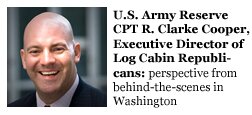By Kristen Kavanaugh
 My mother used to tell me that there is a time and place for everything; and usually she was telling me because it was exactly the wrong time or place for whatever shenanigans I was engaging in at the moment. I have been thinking about my mother’s insight, more recently, in the terms of the choices we make when we communicate with each another.
My mother used to tell me that there is a time and place for everything; and usually she was telling me because it was exactly the wrong time or place for whatever shenanigans I was engaging in at the moment. I have been thinking about my mother’s insight, more recently, in the terms of the choices we make when we communicate with each another.
Choosing to communicate emotionally laden, personal information is just that: a choice. For many people that choice is extremely difficult, especially when it involves discussing issues as complex as coming out, the effects of combat stress or any type of traumatic event. In many circumstances, the choice to talk about these issues is further complicated by unpredictable surroundings and a fear that the recipient of the information will have a negative reaction.
Coming out is never easy. Until recently, that choice has been out of our hands and entrenched in the power and control dynamics of military culture. Now, that decision is up to us. We choose when, where, and to whom we come out. Some people may argue making the decision to come out is just as anxiety provoking as not having the option to tell in the first place. The choice is even further complicated when we are pressured by our peers or society at large to be out in all facets of our lives.
I spoke with a friend last week about an awkward encounter that she had with members of her former chain of command. She recently completed eight years of active duty service in the Marine Corps and had returned to her unit to attend a re-enlistment ceremony. This was her first time back on base since the repeal of DADT. Without hesitation she wore her Military Acceptance Project IX:XX t-shirt to the re-enlistment.
Prior to the ceremony, she found herself engaged in a conversation with her former commanding officer, sergeant major, officer in charge and staff officer in charge. Her CO noticed her t-shirt and looked puzzled. Like a good Marine, she took initiative and told him that IX:XX were roman numerals. The CO acknowledged, but still looked confused. She knew he would eventually make the connection that 9/20 was the date of DADT Repeal. Before that could happen, she disengaged the conversation and excused herself.
For more than a week she questioned her decision to avoid telling her former chain of command the meaning behind the IX:XX t-shirt. She beat herself up for not having the conversation, which, most likely, would have lead to her coming out to them. She described feeling angry with herself for not having the courage to tell them. Although her former chain of command no longer has influence on her life, she felt uneasy with them knowing this detail about her personal life.
Her response was conditioned. For eight years, this Marine was conditioned to fear openness about her sexual orientation. Eight years of conditioning does not instantaneously go away because a policy is repealed.
Immediately, I thought back to my mother’s insight: there’s a time and a place for everything. It wasn’t the right time or place, for my friend… and that’s ok.
In terms of sharing emotionally laden personal information, I propose there is a time and place for everyone, and that time and place is as unique for each individual. One moment, for one individual, may seem like the perfect time to open up about their personal life. For someone else, on the other hand, that same moment may seem like the worst possible time.
This concept supersedes the military and the coming out process. Individuals make choices everyday about sharing deeply personal information. Some people are faced with coming out in the civilian work place. Others are faced with the decision to talk about traumatic experiences that occurred in combat. The decision to share this information carries an emotional burden almost as heavy as the information itself.
It takes a great deal of courage to get to a point where we feel comfortable talking about our inner most feelings. It also takes an ability to truly trust whom we deem worthy of hearing what we have to say.
Communication is a two-way street. Some of us find ourselves on the receiving end of this information. As important as it is for the individual to be able to talk about complex personal issues, it is just as important for us listeners to be prepared to listen to them. We may find that it is not the right time or place for us. We may be busy with work or distracted by our own personal lives. But in this moment it is not about us. It’s about what we would want if we were the one ready to talk about our difficult issues.
The thing to keep in mind is this: whether having the courage to talk about our innermost personal experiences, or taking the time to listen to someone, communication is based in trust. Our ability to trust our decision-making and trust in one another is an integral part of serving in the military.

















